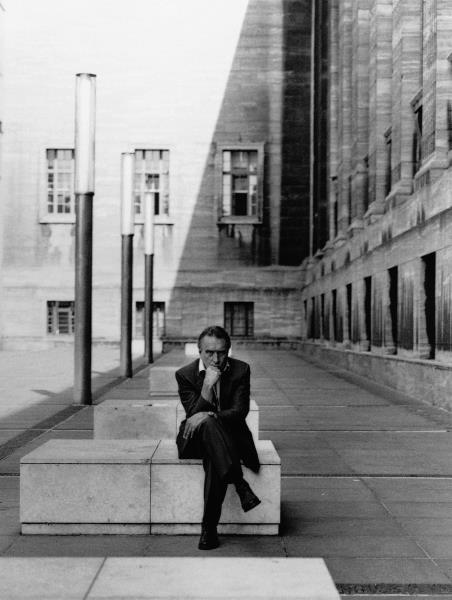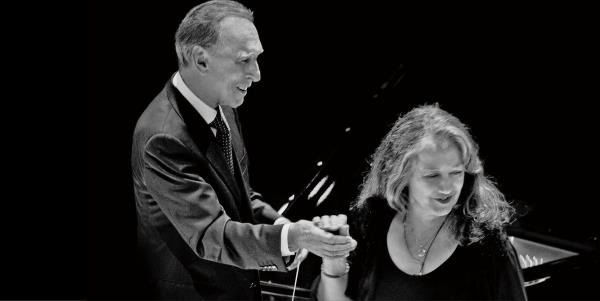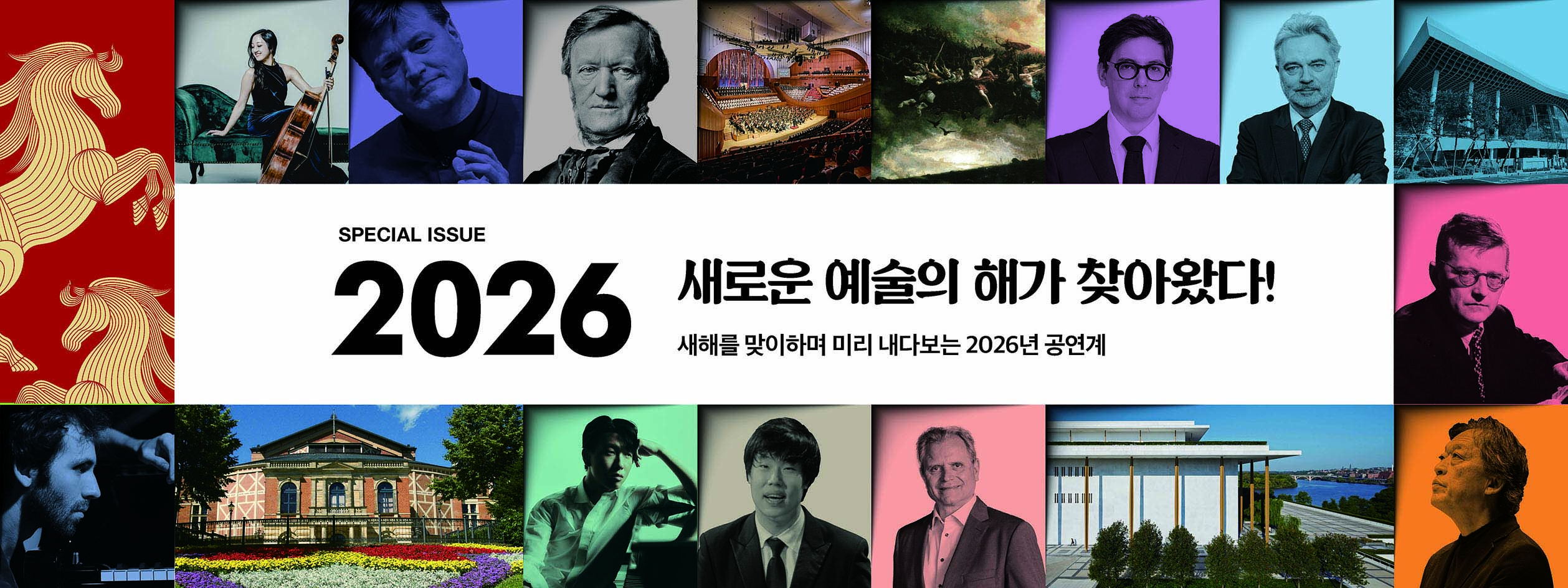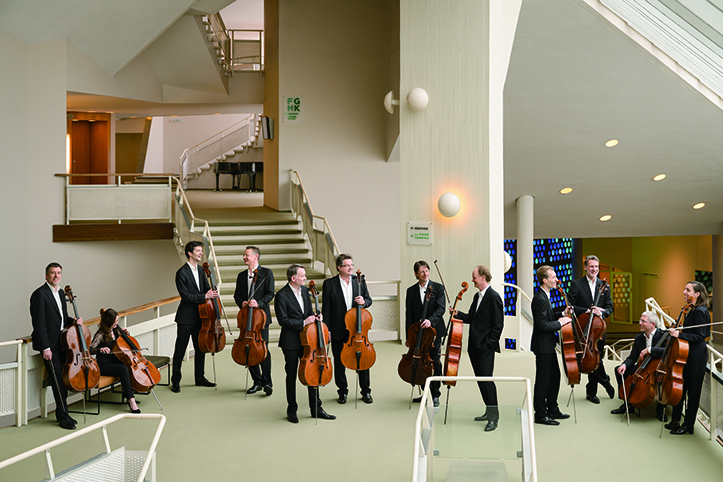세상은 위대한 마에스트로를 잃었다
클라우디오 아바도 1933.6.26 – 2014.1.20
나는 지금 모차르트 피아노 협주곡 앨범을 듣고 있다. 프레이징을 듣고 있노라면 표지를 보지 않고도 지휘자는 클라우디오 아바도, 피아니스트는 그의 가장 가까운 음악적 파트너 중 하나인 마르타 아르헤리치라는 것을 쉽게 알아챌 수 있다. 아바도의 연주에는 그의 지문만큼이나 확실한 색깔이 있다. 그의 음악은 우아하면서도 적극적이고, 정교하면서도 투명하며, 공연이 끝나고 한참 뒤에야 깨닫게 되는 재치와 위트로 반짝인다.
자신만의 독특한 소리를 가진 지휘자는 많지 않다. 아바도는 그런 그만의 소리를 가지고 있었고, 그 사실을 알았으며, 또한 그것을 당연시 여기는 듯보였다. 일각에서는 이러한 태도를 오만함으로 오해했지만, 그와 가까워지게 되면 그것이 자신에게 주어진 재능으로 최고의 음악을 만들어내려는 진심 어린 의지라는 사실을 깨달았다. 아바도는 인간적으로 부족한 점과 기벽도 많은 사람이었다. 그러나 최우선순위가 언제나 음악이란 사실은 확고부동했다.
그는 밀라노의 라 스칼라 극장·빈 슈타츠오퍼·베를린 필하모닉 등 유럽 최고의 자리에서도 극장 측에서 제시하는 바가 자신의 까다로운 기대에 미치지 못하자 주저 없이 떠났다. 빈을 떠난 것은 1990년, 모차르트 서거 200주년 기념일 하루 전이었다. 여러 기준들을 하향조정하자는 극장 측의 제의를 수용할 수 없다는 이유였다. 음악과 관련한 사안은 그에게 논의나 논쟁의 대상이 아니었다.
문득 그가 베를린에서의 임기를 시작한 후 가졌던 첫 콘서트가 떠오른다. 브람스 교향곡 1번. 헤르베르트 폰 카라얀을 비롯해 수많은 지휘자들의 연주에 익숙해진 청중은 그날도 피날레의 웅장하고 속 시원한 선율이 터져 나오기까지 점차적으로 고조되는 긴장감을 기대하며 숨죽였다. 그러나 아바도의 연주는, 질문에서 답으로까지의 전환이 너무나 미세해 감지하기가 어려웠다. 우리가 정신을 차렸을 때는 이미 피날레의 클라이맥스 부분이 한창 울려 퍼지고 있었다. 나는 그 순간 유기적 음악인에 대한 기본적인 면을 이해하게 됐다. 아바도에게 음악이란 스스로 적시를 찾아 자신의 빈 공간을 채우는 자연의 힘이라는 사실 말이다. 이 힘을 통제하려 하는 것은 해안의 파도나 우리 인생의 시계를 멈추려 하는 것만큼이나 헛된 일이었다.
15년 전, 아바도는 위암 선고와 함께 마지막을 준비하란 통보를 받았다. 수술 후 그는 강철 같은 의지와 미식가로서 가장 힘들었을 철저한 식이요법을 통해 병을 이겨내고, 스스로 조직한 앙상블들과 함께 음악을 만들며 화려하고 찬란한 만년을 장식했다. 말러 오케스트라, 루체른 페스티벌 오케스트라, 그리고 아바도가 사망한 그 주에 해체했던 오케스트라 모차르트가 그것들이다. 아바도가 직접 선정한 수십 명의 젊은 유럽 음악인들은 이제 자신들이 이 앙상블들의 일원이었다는 사실을 평생 자랑으로 삼을 것이다.
1980년, 아바도는 런던 심포니 오케스트라에서 구스타프 말러 및 20세기 음악 시리즈를 야심 차게 시작했다. 당시 바비컨 센터에 새로이 자리 잡은 런던 심포니 오케스트라는 가까스로 파산을 면한 처지라 아바도의 프로젝트를 수행할 여력이 없었다. 런던 심포니의 신임 매니저 클라이브 길린슨은 두려움과 겁을 안고 계획이 수정되어야 함을 알렸다. 아바도는 온유한 미소를 지으며 대답했다. “음악에 있어 타협은 없습니다.” 결국 이 음악 페스티벌은 생존을 넘어 성황을 이뤘다. 현재 카네기홀의 디렉터로 재직 중인 길린슨은 그때 아바도의 말을 은유적으로 적어 책상 위에 걸어두었다.
아바도가 가졌던 수준의 퀄리티는 그 어느 시대에서도 찾기 쉽지 않을 만큼 독특하고 특별하다. 예술가에게 있어 완고함이란 딱히 매력적인 특성은 아니지만, 아바도는 세상과 자신에게마저 조소할 수 있는 확실한 능력으로 그 특성을 깎고 다듬었다. 포디엄에서 또는 정치적 견해에서 그의 최대 라이벌이라 인식됐던 리카르도 무티는 내게 이런 말을 해주었다. 가끔씩 아바도와 함께 점심을 먹으며 대중에 비친 자신들의 모순적 이미지에 대해 이야기하며 웃는다고. 사실 자신들은 같은 열정으로 같은 신념에 헌신하고 있다고.
세상은 위대한 마에스트로를 잃었다.
베르디의 레퀴엠은 바로 이러한 사람을 위한 작품일 것이다.
– 2014년 1월 20일 노먼 레브레히트
Tribute to Claudio Abbado
CLAUDIO ABBADO 1933.6.26 – 2014.1.20
I am listening to a Mozart concerto recording, soon to be released. Without looking at the cover, I can hear by the phrasing that the conductor is Claudio Abbado and the pianist Martha Argerich, one of his closest musical partners. There is an Abbado thumb-print on a musical performance that is unlike any other’s — elegant, assertive, exquisitely cut and, not far beneath the surface, glinting with a furtive wit that becomes apparent only hours after the performance is lodged in the memory.
Very few maestros have a distinctive personal sound. Abbado had it, and knew it, and wore it with an insouciance that some mistook for arrogance but which, those who came closer to him recognised, was a determination to make the most of his gift in the service of the music closest to his heart. Abbado, for all his human faults and foibles, made sure everyone knew that the music came first.
He held the highest positions in musical Europe — La Scala, Milan; the Vienna State Opera; the Berlin Philharmonic — and walked away from all three when the conditions they offered failed to match his exacting expectations. Vienna he abandoned in 1990, on the eve of the Mozart bicentennial, refusing to accept a lowering of standards. When it came to music, there was no arguing with Abbado.
The performance that springs instantly to my mind is the concert that opened his tenure in Berlin. It was Brahms’s First Symphony and the audience was waiting, breath bated, for the rising tension and change of gear that Herbert von Karajan and so many others had accustomed them to expect ahead of the big tune in the finale. With Abbado, the transition from question to resolution was almost imperceptible. We were in the midst of the big tune before anyone knew it was there. I understood at that moment one of the fundamental lessons of this organic musician — that music, for Abbado, was a force of nature that had to find its own moment, fill its own vacuum. To control it was as futile as stopping the waves on the shore, or the hands on the clockface of our lives.
He was given up for dead with stomach cancer 15 years ago, but fought back after surgery with steely will and Spartan diet — the hardest thing for a man who adored good cuisine — to share an extended Indian summer of music making with ensembles that he built for himself: the Gustav Mahler Orchestra, the Lucerne Festival Orchestra and, finally, the Orchestra Mozart, which was wound up in the week he died. Dozens of young European musicians, handpicked by Abbado, will wear his selection for life as a badge of pride.
In the 1980s, at the London Symphony Orchestra, Abbado launched an ambitious series of Gustav Mahler and the 20th?century. The LSO, newly installed at the Barbican Centre, had narrowly avoided bankruptcy and could not afford the project. Clive Gillinson, its new manager, went in trepidation to tell Abbado that his plans would have to be watered down. Abbado gave his gentle smile. ‘With music,’ he replied, ‘there is no compromise’. The festival survived and thrived. Gillinson, now director of Carnegie Hall, hung Abbado’s words metaphorically above his desk.
Qualities such as Abbado’s are rare at any time, perhaps unique in a generation. Obduracy is not always an attractive feature in an artist, but Abbado modified it with an unfailing ability to laugh at himself and the world. Riccardo Muti, notionally his arch-rival in podium and political views, told me the two of them would have lunch from time to time to chuckle at the absurdity of their public image, when both were dedicated to the same faith with equal passion.
The world has lost a great maestro. It is for such men that Verdi wrote his Requiem.
by Norman Lebrecht









